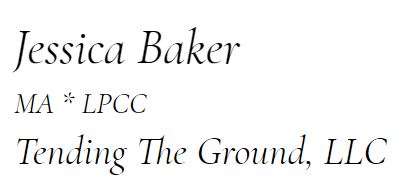We all have expectations for ourselves. We also have expectations for others. Sometimes this line is difficult to distinguish. When others’ early, and perhaps unconscious expectations for us become our own expectations for ourselves, it can be difficult to climb out from under them. The cost can become the price of not knowing ourselves for who we really are. It may feel like we have a wall in between our real self and a seeming false self (a performing or pretending self that doesn’t feel real to us somehow).
As we age, expectations from others, that have become our own expectations, start to shape our behaviors, actions, impulses – our world view. These beliefs become comfortable and we feel anchored in them. It feels safe, reliable, consistent for us and others to keep this worldview in place. This worldview becomes who we know ourselves to be. Our psyche then regularly re-establishes and re-anchors this via internal “parts” – thoughts, behaviors, sensations, feelings, expressions – all ways.
Until… there comes a certain time (often accompanied by depression and or anxiety) when a different worldview is quaking inside us. A deeper, more primitive, and seemingly foreign landscape is emerging, but from within. So, its language is entirely foreign to us. It comes in waves, in sudden outbursts, in deep longing, in nightmares, and confusions and memories. Something is wanted from us. And this feels daunting.
The “parts” that comprise our early worldview are not interested in this new internal quaking. They just want everything to stay the same. Even if our life is unhappy, not working, and feel like struggle and disease. These “parts” begin to assert a certain dominance over this upheaval, showcasing their distaste for it. There is an internal struggle; a struggle for hierarchy within. This battle feels very uncomfortable. Some of these “parts” are literally championing for and fostering old patterns that are restrictive and destructive. They sponsor helplessness in their assertion of dominance, resisting change, and fluidity.
We are then faced with allocating outside help, reinforcement, support, a bridge over to the other side. Often times, we can’t even see the far off bridge to know that one might exist. But it does. Through a varying series of surrendering, learning, growing, letting go, holding center during the storms, and slowly acquiring more trust with each turn – something new emerges. A new worldview appears. It feels very unfamiliar. Surely, we must have taken a wrong turn?
As our old ways fall away and old contracts begin to dissolve, we find ourselves with a new perspective. Enlivened. Re-born. Steadied. This is both an internal and external re-shuffling with lots of learning, yielding, discovering and maturing. New skills, values, strengths, passions and integrity have come along for the ride.
We are not who we remember ourselves to be; transformed.
We all have expectations for ourselves. We also have expectations for others. Sometimes this line is difficult to distinguish. When others’ early, and perhaps unconscious expectations for us become our own expectations for ourselves, it can be difficult to climb out from under them. The cost can become the price of not knowing ourselves for who we really are. It may feel like we have a wall in between our real self and a seeming false self (a performing or pretending self that doesn’t feel real to us somehow). As we age, expectations from others, that have become our own expectations, start to shape our behaviors, actions, impulses – our world view. These beliefs become comfortable and we feel anchored in them. It feels safe, reliable, consistent for us and others to keep this world view in place. This worldview becomes who we know ourselves to be. Our psyche then regularly re-establishes and re-anchors this via internal “parts” – thoughts, behaviors, sensations, feelings, expressions – all ways.
Until… there comes a certain time (often accompanied by depression and or anxiety) when a different worldview is quaking inside us. A deeper, more primitive, and seemingly foreign landscape is emerging, but from within. So, its language is entirely foreign to us. It comes in waves, in sudden outbursts, in deep longing, in nightmares, and confusions and memories. Something is wanted from us. And this feels daunting.
The “parts” that comprise our early worldview are not interested in this new internal quaking. They just want everything to stay the same. Even if our life is unhappy, not working, and feel like struggle and disease. These “parts” begin to assert a certain dominance over this upheaval, showcasing their distaste for it. There is an internal struggle; a struggle for hierarchy within. This battle feels very uncomfortable. Some of these “parts” are literally championing for and fostering demise. They sponsor helplessness in their assertion of dominance, resisting change and fluidity.
We are then faced with allocating outside help, reinforcement, support, a bridge over to the other side. Often times, we can’t even see the far off bridge to know that one might exist. But it does. Through a varying series of surrendering, learning, growing, letting go, holding center during the storms, and slowly acquiring more trust with each turn – something new emerges. A new worldview appears. It feels very unfamiliar. Surely, we must have taken a wrong turn? As our old ways fall away and old contracts begin to dissolve, we find ourselves with a new perspective. Enlivened. Re-born. Steadied. This is both an internal and external re-shuffling with lots of learning, yielding, discovering and maturing (regardless of our age). New skills, values, strengths, passions and integrity has come along for the ride. We are not who we remember ourselves to be; transformed.


Recent Comments